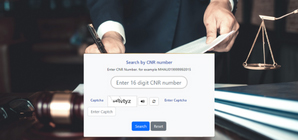 Cheque bounce due to stop payment.
Cheque bounce due to stop payment.
1 week ago
I need a clarification on a cheque bounce case. I have sent around 15 lakh through online to my friend’s business account for his business purpose by taking a loan on my name . He started paying the emi regularly by sending the emi amount to me for an year. The emi was sent to me by his wife, mother and from his business and personal account. During this period my marriage was held and he was the one who started looking after the expense charges. For my marriage expense I have given him the money separately via cash and also through netbanking. After some days he stopped paying the EMI. He have given me the reply that the loan amount which I have transferred has been spent by him for my marriage. If I ask for the expense details he doesn’t gave me proper response. Actually he thought of cheating me to not to return the money of 15 lakh. He stopped flaying the EMI to me. He stopped to respond my phone calls and his parents were also refused to pay the emi back. I have raised a police complaint in our local police station. After the complaint my opponent gave me two cheques of 5 lakhs of about 10 lakhs. Then he stopped the payment and my both of the cheque got bounced. Now he raised a complaint to the police superiors that the local police inspector and DSP have threatened him to get the cheque from him. But that is not the truth. As I have done the transaction through netbanking, he was not able to prove he didn’t receive any money from me. So that he gave us the cheque. Now I have sent the legal notice twice as per the process. I received a reply that he was threatened by police to lend me the cheque. So this will not be under 138 NIA. Now we have the 1. Bank statement which points the transferred amount of 15 lakhs, 2. Cheque and the return memo 3. Acknowledgment for the notice sent to the opponent. Now pls let me know if there are any chances that the opponent can prove him as innocent. And let me know the chances of winning the case.
I have sent him a legal notice for the cheque bounce. He replied that the money which I sent to him in February is for my marriage in November and it is being spent for it. So the cheques were issued to me by threatening him.
When a person issues a cheque against a promise or against any refund of money refundable by her or him and in the absence of any agreement, the cheque receiver holding the said cheque is free to present the same for encashment and on presentation, if the cheque is dishonored or bounced for any reason, then holder of the Cheque can file a criminal suit against the drawer of the cheque under section 138 N I Act, 1938 within three months from the date on which it was presented in the bank. A cheque leaf, voluntarily signed and handed over by the Drawer of the cheque, which is towards some payment, would attract presumption under Section 139 of the N.I. Act and on dishonor of the cheque, the cheque's drawer will be held accused under Sec. 138 of N I Act, 1938. The Supreme Court in the case of Sripati Singh v. State of Jharkhand, 2021 SCC OnLine SC 1002, decided on 28.10.2021, held that a cheque issued as security under a financial transaction cannot be considered a worthless piece of paper under every circumstance and that there cannot be a hard and fast rule that a cheque which is issued as security can never be presented by the drawee of the cheque. If in a financial transaction, an amount is advanced and the receiver of the amount agrees to repay the amount in a specified timeframe and issues a cheque as security to secure such repayment; if the said amount is not repaid in any other form before the due date or if there is no other understanding or agreement between the parties to defer the payment of the amount, the cheque which is issued as security would mature for presentation and the drawee of the cheque would be entitled to present the same. On such presentation, if the cheque is dishonored, the consequences contemplated under Section 138 and the other provisions of the N.I. Act, 1938 would flow. A legal notice has to be served on the drawer of the cheque within 30 days of the instance of dishonor. The purpose is to give the drawer of the cheque a proper notice regarding the dishonor of the cheque irrespective of the reason behind the dishonor of the cheque and a chance to repay. Cause of action arises when notice is served on the drawer and the drawer fails to make payment of the amount of the cheque within 15 days. Reach out to an Advocate for filing a criminal suit against the person under Section 138 of the N I Act, 1938 within the prescribed time limit for appropriate relief. Feel free to contact our legal team to avail our expertise service to navigate the issue in the right way.
You just file cheque bounce case against him and then let him contest the case and prove his defence which is very hard.



























